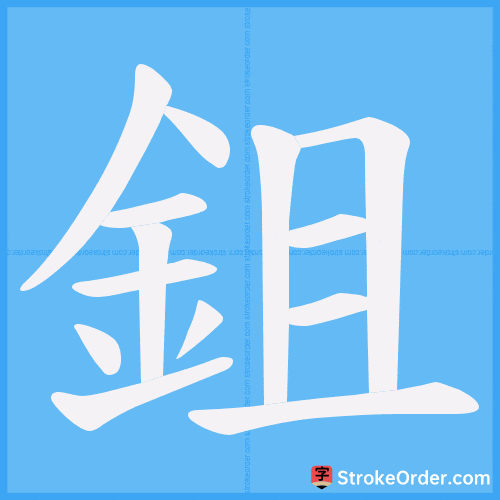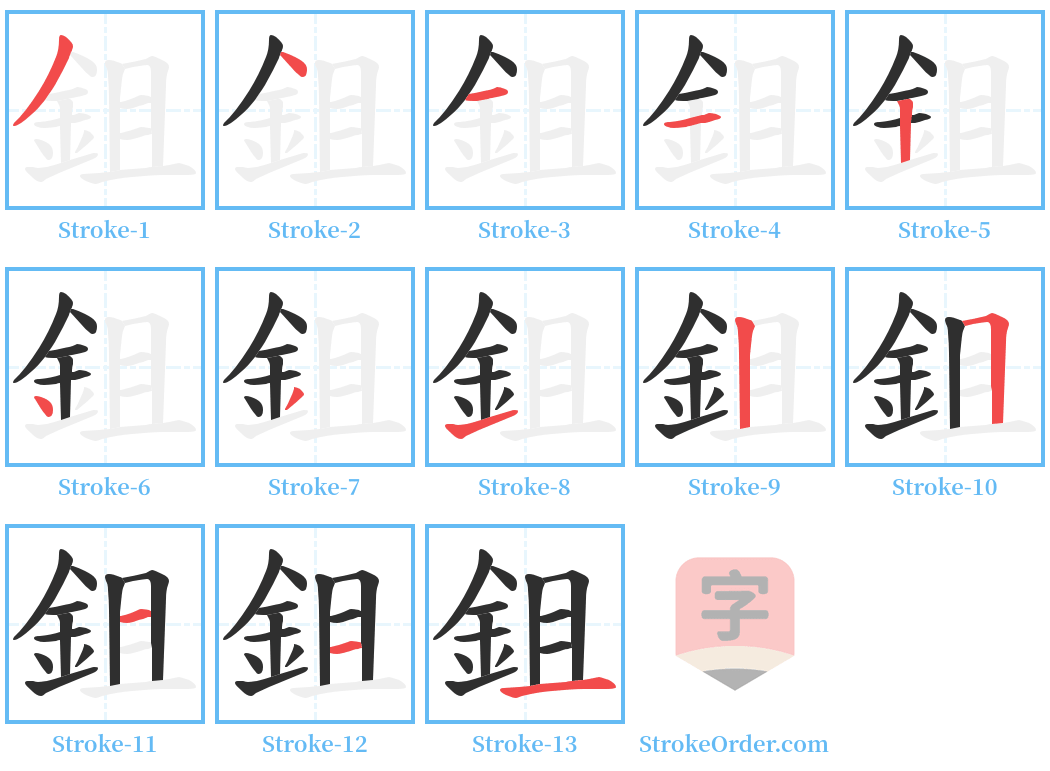鉏 Stroke Order
Animated Stroke Order of 鉏

Stroke Order Diagrams for 鉏

Information of 鉏
Pinyin
chú
Radical
釒
Strokes
13 strokes
Usage
★★
Definition
鉏
1. A farming tool for plowing and weeding.
2. To use a hoe to dig or weed the soil.
3. To eradicate; to eliminate.
Noun: A tool for turning soil and removing weeds. For example, in "Wenxuan" by Jia Yi, it says: "鉏櫌棘矜, not because it is longer than the halberd." In the "Book of the Later Han," it states: "He took off his morning dress and took a hoe to clear the weeds."
Verb: To cultivate the land with a hoe. In the poem by Dai Shulun from the Tang Dynasty "Tuntian Ci": "The wheat seedlings gradually grow in the dry sky, the soil is so dry that I cannot hoe."
1. Also pronounced as "苴" (ju), referring to a grass mat used for sacrifices.
Surname.
1. Same as "耡" (chǎ): An ancient tax term. Auxiliary tax, i.e., one-tenth tax.
1. 〔鉏鋙〕also written as “鉏䥏.” 1) Not compatible. 2) Inappropriate appearance. 3) Machinery. 4) Ware.
1. 〔鉏牙〕Items protruding out. Objects with edges that are uneven like saw teeth.
1. An ancient country name.
2. Surname.